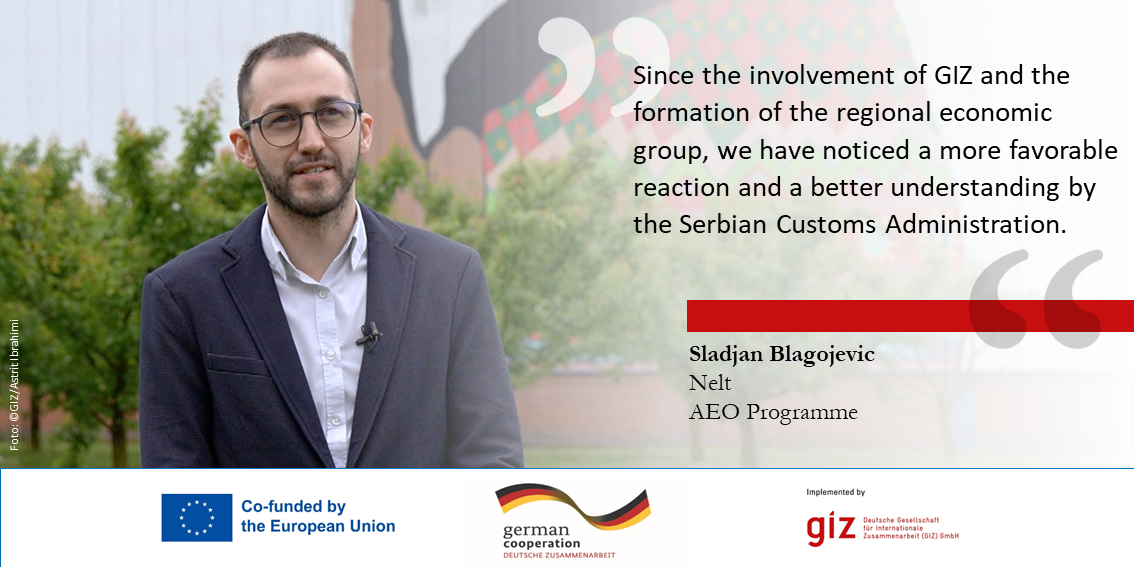Companies from the Western Balkans are benefiting from international support in overcoming administrative bureaucracy and improving the business climate in the region. Serbia’s Nelt hopes that through mediation and proper advocacy, the region may easily integrate economically and do business without obstacles.
Companies in Southeastern Europe claim that the business cooperation has become more efficient and productive with the involvement of the Deutsche Gesellschaft für Internationale Zusammenarbeit (GIZ).
Serbia’s Nelt has joined one of GIZ’s trade facilitation programmes, based on the concept Customs-to-Business partnership, and is part of a regional network of businesses aiming at improving the business climate in the region.
“Nelt and GIZ, from this point of view, is a long-term partnership, resulting in positive outcomes'“, says Nelt’s Freight Forwarding Supervisor, Sladjan Blagojevic. He further underlines: “We are hoping and striving to use joint forces in connecting the economic groups from the region in order to reach our goals and facilitate our everyday business”.
Nelt, in Serbia, has been granted the status of the Authorized Economic Operator (AEO) in 2016.
With the support of the European Commission and the German Government, through the project ‘Support to Regional Economic Integration‘, the AEO Association has been established, with companies from all WB6 as its members. Through the AEO Association, Nelt and other companies are joining forces but also their knowhow, trying to improve the business climate in the region.
Blagojevic also noted that Nelt has noticed a more favourable reaction and a better understanding by the Serbian Customs Administration since the involvement of GIZ and the formation of the regional economic group. He points out that holding the AEO status helps Nelt in faster and simpler procedures with Customs clearance of goods, faster border passage for goods, easier communication with authorities, concerning inspection of goods.
The company provides integrated logistics services to clients, from international transport of goods, through warehouses and customs mediation and later repackaging of the goods, finishing touches and delivery to end users through its distribution channels.
In a region where companies are eager to see improvements in administrative efficiency and a more favorable business climate, the partnership between businesses like Serbia’s Nelt and GIZ stands as a beacon of progress. Through initiatives like the Customs-to-Business partnership and the AEO Association, this collaboration is facilitating positive changes in the way businesses operate in the Western Balkans. With the support of the European Commission and the German Government, companies in the region are joining forces to simplify customs procedures, expedite border crossings, and foster better communication with authorities. As these efforts continue, the future looks promising for businesses in Southeastern Europe. Nelt remains committed to contributing to the region’s economic growth and prosperity.
This article was produced with the financial support of the European Union and the German Federal Ministry of Economic Cooperation and Development (BMZ). Its contents are the sole responsibility of GIZ and do not necessarily reflect the views of the EU or the Federal Ministry of Economic Cooperation and Development (BMZ).


